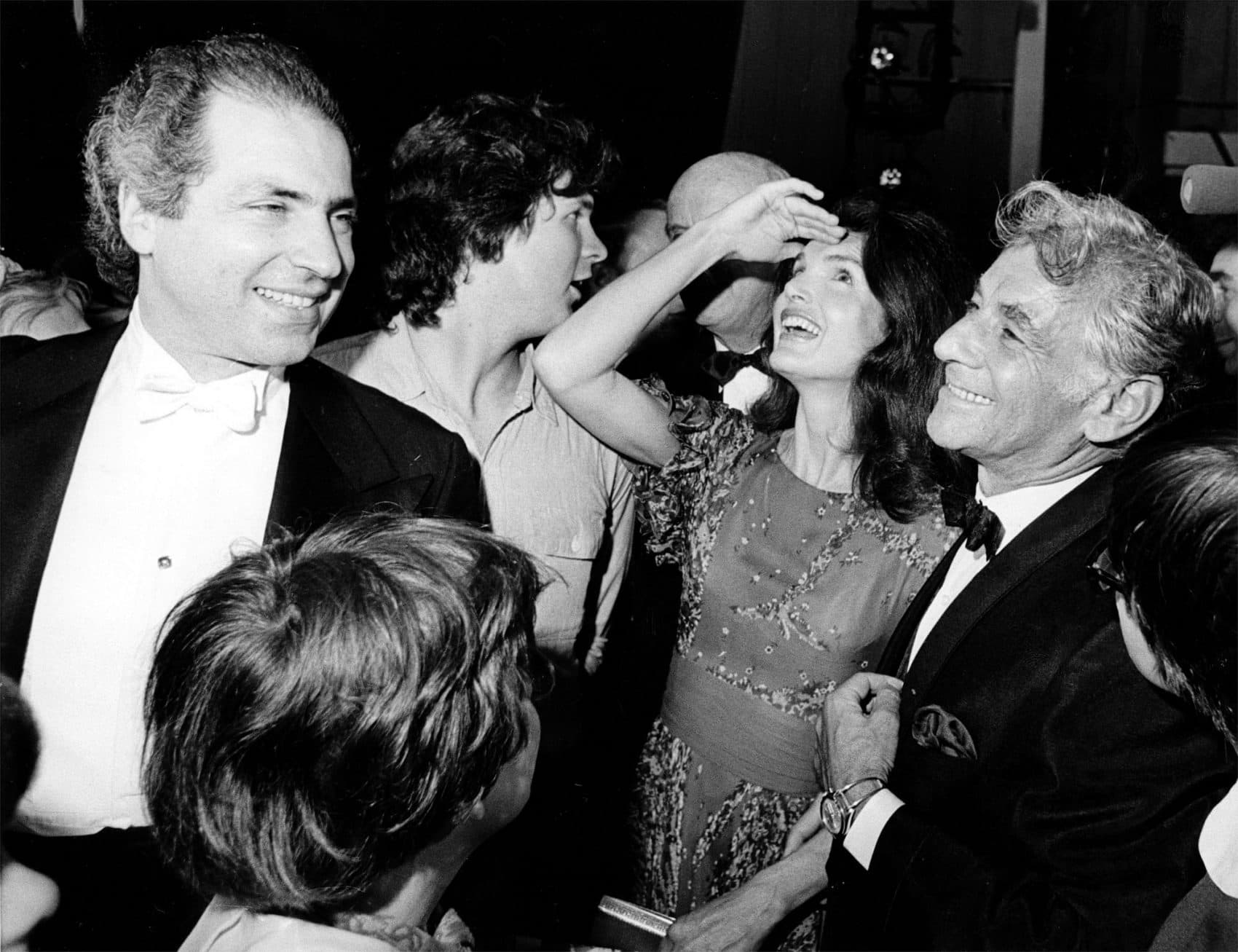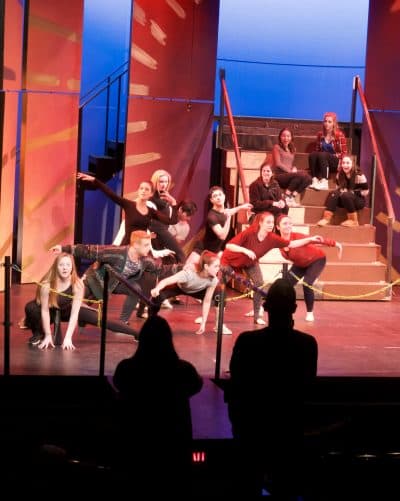Advertisement
Boston Conservatory Takes On Leonard Bernstein’s ‘Mass’ — And Today's Political Traumas

Leonard Bernstein didn’t live long enough to worry about cellphones, tweeting or social media replacing human contact — not to mention the rise of Donald Trump and "alternative facts."
But if he had, he would have adapted one of his most memorable works to fit the times.
Bernstein’s “Mass” — that malleable hodgepodge of theater, classical music, rock 'n’ roll and extravagant vocals — premiered in 1971, a commission by Jacqueline Kennedy Onassis to commemorate the opening of Washington’s Kennedy Center. Since then, it has been recast as an anti-Afghan War protest, made into various pro-, anti- and quasi-religious statements, and championed the cause of gay marriage rights.
“Mass” is a chameleon.
The upcoming Boston Conservatory at Berklee presentation of “Mass,” onstage April 7-9 in the Boston Conservatory Theater, takes on the technology age. Director Neil Donohoe, dean of the theater department, directed the gay marriage adaptation — also at BoCo, in 2004 — and now says firmly “it can be interpreted in many ways.
“The last time I did it, equality in marriage was up for a vote in Massachusetts,” he says. “But it also can play as Old Testament versus New Testament. Or youth movement versus conservative government. And it came from the Vietnam era originally.”
In case there’s any doubt, the outcome of November’s election had everything to do with this current interpretation. Just not in the way you might think.
“The election took me by surprise,” Donohoe says. “The whole thing was a cultural phenomenon I never expected to happen. From reality TV, to tweeting and texting, and this idea of alternate truth — the more we use technology to connect, the more we become disconnected.
“Our premise is based on what would happen if all cell phones were gone, and we had to see people face to face.
“At the very beginning,” Donohoe says, “the ‘Kyrie’ is a sort of Tower of Babel. It’s imagistic, not literal, but they are forced to face each other in confrontational ways.”
“Mass” is a mass, after all — based on a Roman Catholic practice. Bernstein does include Latin passages but also uses additional English language sections of the libretto, some he wrote himself, and some contributed by Stephen Schwartz.

The onstage forces are impressive. The Celebrant sings the central role, joined by a mixed four-part choir, a boys choir, and an ensemble called the Street Singers. Acolytes assist the Celebrant and dance portions of the drama. A classical orchestra in the pit is complemented by a rock band and a marching band. Liturgical sections marked “Kyrie” or “Gloria” or “Credo” are interspersed with secular sections marked “Trope” and “Fraction.”
“It’s a challenging project for us,” says Donohoe, who co-directs with choreographer Larry Souza. “Arduous, but rewarding. A lot of it is sung in Latin, and it’s a complex score to learn.”
Eric Stern conducts, and the lead role as Celebrant alternates among Pablo Torres, Evan Kinnane, Elizabeth D’Aiuto and Kennedy Carstens. The cast is entirely drawn from BoCo’s theater division.
“He knew how to write,” Donohoe says succinctly about Bernstein. “It’s amazingly diverse — a stroke of genius.”
For all its doubt and conflict, “Mass” does end on a positive, embracing note. In the right performance, “Mass” retains its emotional pull more than four decades after the premiere.
“He was an optimistic person,” Donohoe says of Bernstein, “and I’m hoping that in the end, the human diaspora of the children leading us back to Eden will center us again, and we can start to move forward.
“Every generation needs something to champion, something that goes against the old values,” Donohoe says. “This cast was just kids when 9/11 happened. I think this is the first time as adults that they’ve faced a surprising outcome. And I didn’t realize how much they were actually traumatized by this all happening.
“We’ll try to capture the spirit of it,” he says, “and people can interpret it many different ways.”
Correction: An earlier version of this post incorrectly identified the performance dates of "Mass." We regret the error.

